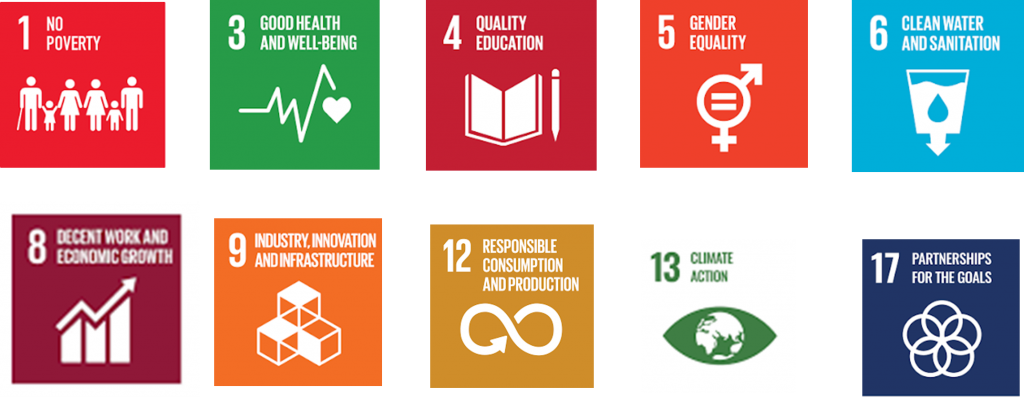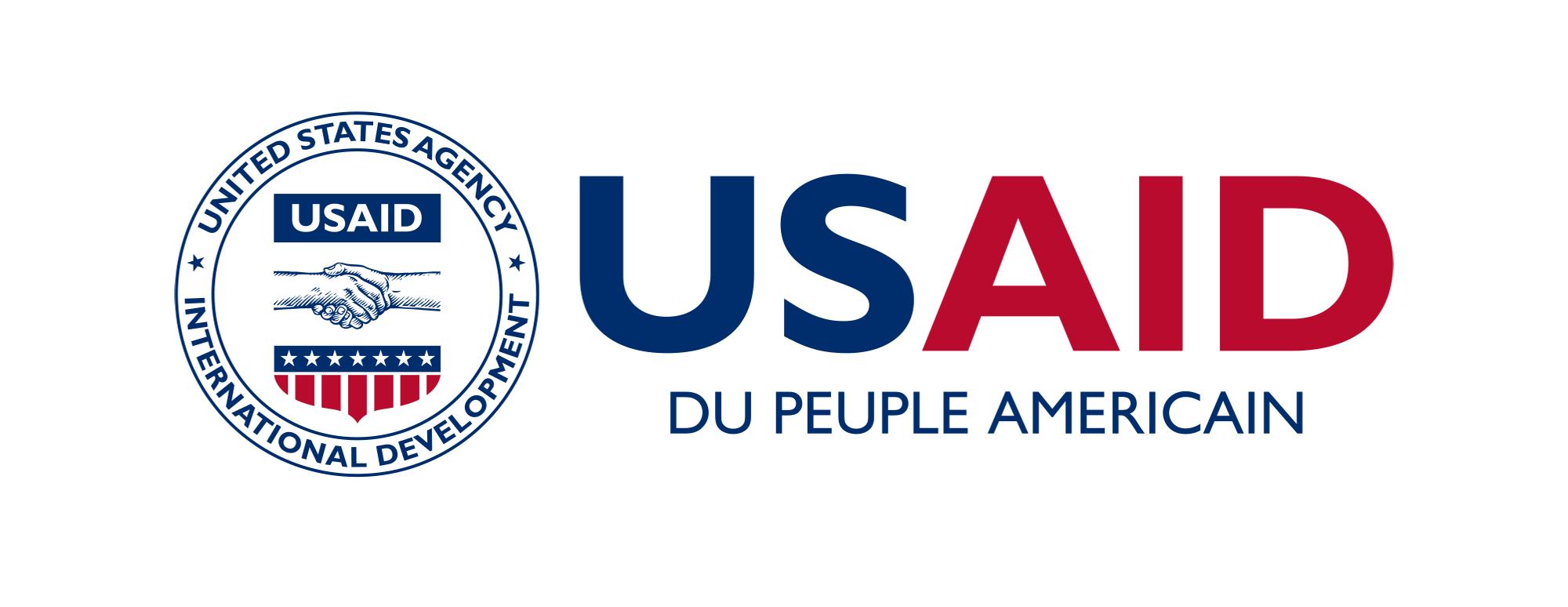Ethical Apparel Africa’s success in eco-conscious, values-driven manufacturing and exporting
By Akua Mensah, Communication Specialist
The apparel industry is the second largest polluter in the world behind the oil industry. This startling statistic is due mainly to the meteoric rise of “fast fashion”—mass produced clothing that samples trendy designer pieces and makes them directly available to the consumer in unprecedented volumes.
In 2014, the average fashion consumer bought 60 percent more clothing than a consumer in 2000, and the exponential increase continues to be more staggering. While fast fashion has drastically reduced the cost that consumers pay up front for an item of clothing, that balance is paid elsewhere. Only 2 percent of apparel factory workers worldwide are paid a livable wage and the apparel industry alone accounts for 10 percent of global greenhouse gas emissions. From farms that produce the crops which are developed into fabric, down to the distribution of the finished products, the entire apparel supply chain is heavily energy-intensive, and most of this energy is generated from fossil fuels and coal.
The apparel industry, in its current state, would seem antithetical to the idea of sustainability. And in many ways, it is. The volumes of stock and waste produced, the state of workers’ rights and workplace conditions, and its toll on the environment cannot be reasonably maintained without compromising the livelihoods of future generations. However, there are players who are reshaping what the industry could look like and are bringing an ethical, environmentally conscious approach to apparel production. One such player is Ethical Apparel Africa (EAA), a Trade Hub co-investment partner in the apparel sector, whose core belief is that ethical, eco-conscious, and cost-competitive production are not mutually exclusive: manufacturing can prioritize people, the planet, and profit.
Ethical Apparel Africa’s approach to ethical manufacturing is primarily anchored in providing their workers with dignified working conditions, a livable wage, and opportunities for training and career advancement. Attracted by EAA’s commitment to wellbeing and transparency, the Levi Strauss Foundation entered a partnership with Maagrace Garment Industries (EAA’s partner factory in Ghana) in 2022. This three-year engagement aims to measure wellbeing using innovative new methods, experiment with wellbeing initiatives, and re-test impact on workers.
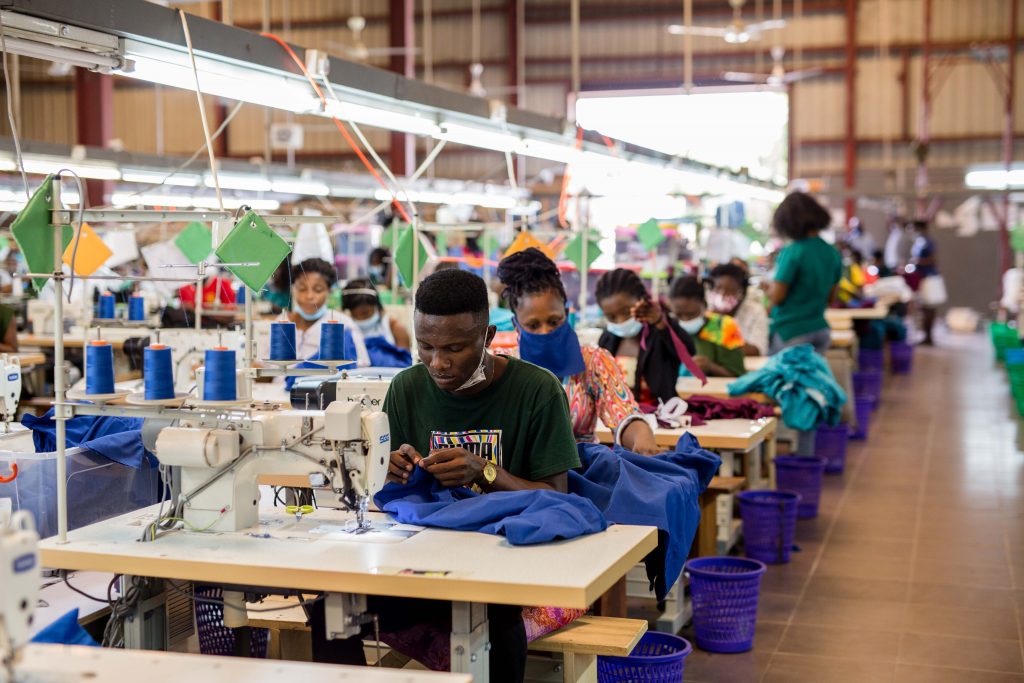
In May 2022, EAA completed the baseline survey with participation from over 300 employees, leveraging technology (iPads), peer engagement, and expert support from a local NGO. The results were overwhelmingly positive. The early outcomes indicated that 92 percent of Maagrace’s workforce appreciate teamwork, 98 percent consider expectation/roles to be clear, 92 percent of the workers confirmed that safety is a priority at work and 94 percent of them are proud of their work. Moving forward, this partnership should enable EAA to publicize rigorous data around what works to improve workers’ wellbeing, specifically in a Ghanaian garment industry context.
In addition to ethics in working conditions, the company also highly prioritizes incorporating eco-conscious practices to minimize their environmental impact. One such initiative spearheaded by EAA was transitioning Maagrace Garment Industries to run on solar power.
Apparel production requires large amounts of energy—energy to power machines, air conditioners, produce heat or steam, and the myriad other processes required to turn a swath of fabric into a finished garment. This translates to burning large quantities of fossil fuels and significant greenhouse gas emission. By transitioning to solar power, a clean energy source, EAA is cutting back heavily on the factory’s environmental impact and providing an example to other factories in Ghana, proving that it is possible, and profitable, to do the same. Since the implementation of solar power in March 2022, 95,712 kWh of clean energy has been consumed, reducing CO2 by 41,156 kg over 5 months1.
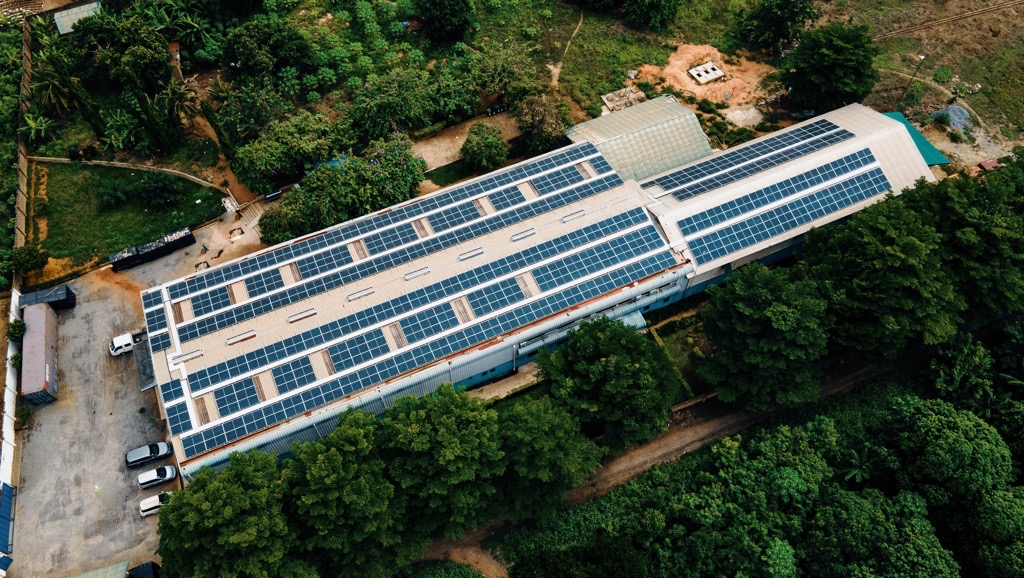
Apparel waste is also a significant environmental pollutant. About 35 percent of the materials in the apparel supply chain end up as waste in a landfill before finished garments even reach the end consumers. EAA works to minimize the amount of waste their partner factory produces by repurposing cut fabric and unusable stock where possible. The factory donates waste fabric to local training schools and sewing apprenticeships, and constantly seeks to find innovative ways to repurpose waste materials. In partnership with the Ethical Trading Initiative, Maagrace has also recently launched a “green social dialogue” initiative to foster waste management at scale based on workers involvement and the work of the newly created Green Taskforce. Maagrace is determined to go even further in developing eco-conscious practices and leading by example in the industry.
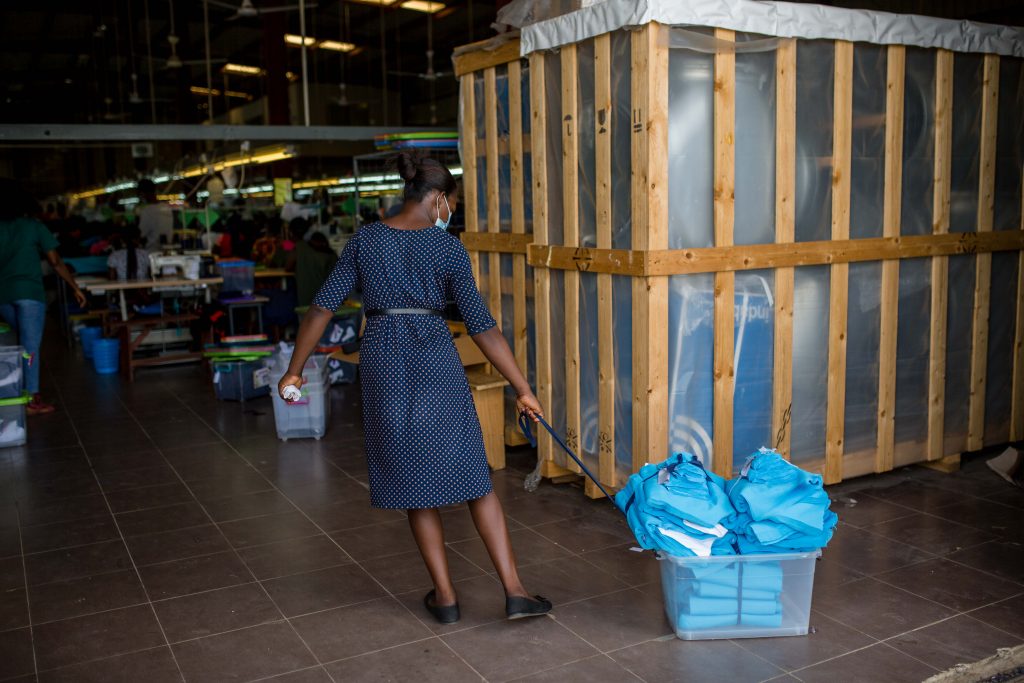
EAA’s interest in West Africa as a manufacturing hub is itself grounded in the company’s objective to minimize environmental impact. West Africa is the 6th largest cotton-producing region in the world, producing sustainable organic cotton. About 95 percent of this cotton is currently exported in its raw form, as the capacity to turn weave fabric from cotton in mass has not been fully developed in the region. EAA intends to catalyze investment in spinning and weaving the locally produced cotton into fibers for fabric, thereby closing the gap in the value chain, cutting back on transportation from importing processed cotton, and therefore, further reducing the company’s overall carbon footprint.
For sustainable practices to become an industry standard in apparel manufacturing, companies need to see that investing in clean energy, minimizing waste, and prioritizing the well-being of factory workers is not only ethical, but also profitable. With their model factory in Ghana, Ethical Apparel Africa is successfully demonstrating that these practices are improving the company’s profitability without sacrificing values rooted in caring for humanity and the environment, leading the way in proving that it is possible for the apparel industry to reinvent itself.
Ethical Apparel Africa is actively contributing to the following SDGs:
